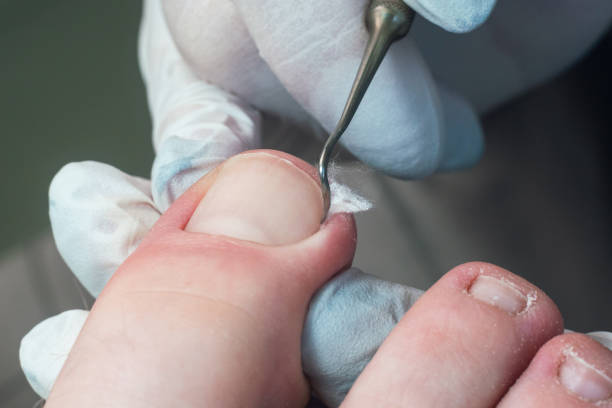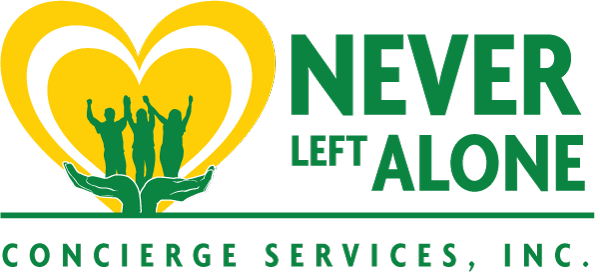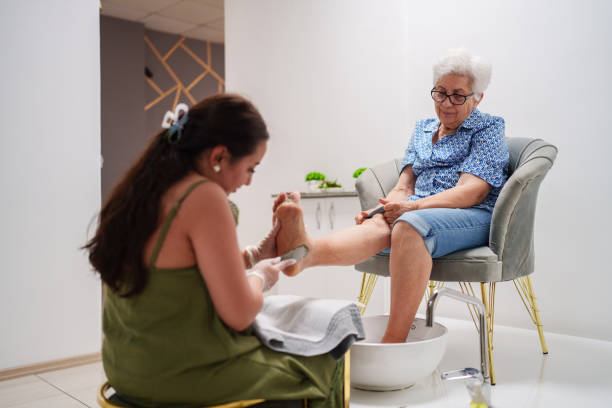A Common Foot Ailment in Seniors
As we age, our bodies undergo numerous changes that can affect various aspects of our health—including the condition of our feet. One common issue faced by seniors is the development of ingrown toenails and hard cuticles. These conditions can lead to significant discomfort and even serious complications if left untreated, but what really are the causes, effects, prevention, and treatment of ingrown toenails and hard cuticles especially for seniors?
Source: Overview: Ingrown Toenail by National Library of Medicine & Addressing Age-Related Challenges to Ingrown Toenails with the Elderly by Urgent Care for Feet
Why Are Seniors More Prone to Severe Ingrown Toenails and Hard Cuticles?
Aging brings about changes in skin elasticity, nail growth, and circulation, all of which can make seniors more susceptible to foot problems. Reduced moisture in the skin often results in hardened cuticles, while toenails may thicken or grow irregularly, increasing the likelihood of ingrown toenails. Additionally, seniors may struggle with limited mobility, making routine foot care challenging.
- Thickening Nails: As we age, our toenails tend to thicken, making them more difficult to trim correctly. This can increase the likelihood of the nail growing into the surrounding skin.
Source: How to Trim Thickened Toenails by Mayo Clinic
- Reduced Flexibility: Many seniors experience decreased flexibility, making it challenging to reach their feet and perform proper nail care.
Source: Foot Care for Seniors: Keeping Mobility and Independence by Foot & Ankle Specialists of New Jersey
- Underlying Health Conditions: People age, physiological changes make seniors more vulnerable to foot problems. Seniors are more likely to have health conditions like diabetes or circulatory problems that can affect foot health and increase the risk of complications from ingrown toenails.
Source: Ingrown toenails by Health Direct Australia
- Dry Skin: Aging skin tends to become drier, and reduced skin elasticity, slower nail growth, and diminished circulation contributes to the prevalence of ingrown toenails and hardened cuticles. leading to develop harder cuticles that are more prone to cracking and splitting.
Source: Addressing Age-Related Challenges to Ingrown Toenails with the Elderly by Urgent Care for Feet

Additional Factors Contributing to Ingrown Toenails and Hard Cuticles in Seniors
Beyond the physiological changes associated with aging, other factors can contribute to ingrown toenails and hard cuticles in seniors:
Chronic Conditions: Diabetes and arthritis can impair circulation and nerve function, increasing the risk of foot complications.
Ill-fitting Footwear: Tight or improperly fitted shoes can place pressure on the toes, encouraging nails to grow into the skin.
Reduced Nail Care: Physical limitations or visual impairments may prevent seniors from trimming their nails properly.
Effects of Ingrown Toenails and Hard Cuticles
For most people, ingrown toenails and hardened cuticles cause discomfort, redness, and swelling. However, in seniors, these conditions can lead to severe complications.
General Effects:
- Pain: Ranging from mild to severe, pain is the most common symptom.
- Swelling and Redness: Inflammation around the affected toe.
Source: Ingrown Toenails by Mayo Clinic
- Infection: Bacteria can enter the broken skin, leading to pus and increased pain.
Source: Ingrown Toenails by Mayo Clinic
- Difficulty Walking: Pain and discomfort can limit mobility.
Specific to Seniors Effects:
- Increased Risk of Infection: Weakened immune systems and underlying health conditions can make infections more likely and severe.
Source: Nails – Fingernail and Toenail Problems by Better Health Channel
- Slower Healing: The aging process slows down tissue repair.
Source: Why Do Older People Heal More Slowly? by University of Pittsburgh
- Complications: Untreated ingrown toenails can lead to cellulitis, osteomyelitis, or even gangrene, especially with diabetes.
Source: Should people with diabetes treat ingrown toenails at home? by Long Island Heel Pain
- Reduced Mobility and Independence: Foot problems can significantly impact daily activities and independence.
- Increased Fall Risk: Pain and altered gait can increase the risk of falls.
Is There a Specific Age Range for Developing Ingrown Toenails and Hard Cuticles?
While ingrown toenails can develop at any age, they become more common in seniors due to age-related changes. Typically, the risk increases after the age of 60, when nails tend to thicken and grow more slowly.
Why Some People Don't Develop These Conditions
While ingrown toenails can develop at any age, they become more common in seniors due to age-related changes. Typically, the risk increases after the age of 60, when nails tend to thicken and grow more slowly.
- Genetics: Some people may have naturally strong nails and healthy cuticles.
- Proper Foot Care: Consistent and proper nail trimming and moisturizing with the help of, if it’s also part of their scope, your skilled-care assistant can prevent these ingrown tonails and hard cuticles to develop.
- Good Footwear Choices: Wearing comfortable shoes that fit well can reduce pressure on the toes. So regular inspections of your feet an foot ware by your care staff for any signs of ingrown toenails, redness, swelling, or changes in nail shape, can certainly make a difference.
- Overall Health: Maintaining good overall health can contribute to healthy feet and nails.
Best Ways to Prevent Ingrown Toenails and Hard Cuticles
Prevention is always better than cure. Here are key strategies to maintain healthy nails and cuticles:
Proper Nail Trimming: If the senior is comfortable with it, and if it’s within the scope of your services, staff can assist with careful nail trimming. This includes:
Cutting toenails straight across.
Avoiding cutting nails too short.
- Not rounding the corners of the nails.
- Moisturize Regularly: Keeping the feet and cuticles moisturized is crucial, and the care staff can apply a good quality foot cream to prevent dryness and cracking.
Wear Comfortable Shoes: Ensure the senior is wearing comfortable shoes that fit well and don’t put pressure on the toes. Staff can help with shoe selection and ensure they are wearing appropriate socks.
Practice Good Hygiene: Regularly clean and dry feet to prevent infections.
Routine Checkups: Visit a podiatrist for periodic assessments.
Remedies for Ingrown Toenails and Hard Cuticles at Home
If you already have an ingrown toenail or hard cuticles, you can try the following remedies before seeking professional help:
Warm Foot Bath: Soak feet in warm water with Epsom salts to reduce inflammation. With encouragements and assistance of the care satff, you can enjoy soaking your feet to soothe the affected toe and reduce inflammation.
Gentle Lifting: Use sterile cotton to gently lift the ingrown nail edge.
Moisturizers: Apply cuticle oil or cream to soften hard cuticles.
Antibiotic Ointments: For minor infections, use over-the-counter treatments.
Important: If you have diabetes or any other health condition that affects your feet, consult a healthcare professional before trying any home remedies.
Professional Treatments for The Severe Cases of Ingrown Toenails and Hard Cuticles
When home remedies are insufficient, a podiatrist can provide various treatments for ingrown toenails and hard cuticles, including:
- Lifting the nail: The podiatrist may carefully lift the ingrown nail edge and place cotton or a splint underneath to encourage proper growth.
Nail Avulsion: Partial or complete removal of the affected nail.
Cuticle Care: Professional trimming, moisturizing, and remove excess cuticle.
- Medication: Topical or oral antibiotics may be prescribed to treat infection.
Surgical Interventions: For chronic issues, surgery may correct the nail’s growth pattern.
The Historical Context of Ingrown Toenails

Interestingly, the earliest mention of ingrown toenails dates back to ancient Egypt where herbal poultices and rudimentary surgeries were used to address the condition. Ancient Egyptian medical texts suggest that people relied on natural remedies and basic tools to treat ingrown toenails. Indicating that this condition has been a concern for centuries.
How Never Left Alone Concierge Services, Inc., Can Help
At Never Left Alone Concierge Services, Inc., we specialize in providing compassionate, personalized care, especially for the active seniors. Our team of professional care assistants can assist with routine foot care, including nail trimming, moisturizing, and preparations for the spa-like foot bath. With our help in addressing the needs to prevent, and treat ingrown toenails and hard cuticles, we help seniors maintain comfort, mobility, and overall improving their quality of life.
Having ingrown toenails and hard cuticles are common foot problems that can cause significant discomfort and complications, especially for seniors. However, a proactive research of the causes, effects, and prevention strategies, can help seniors take a big leap in maintaining their healthy, active, and happy lifestyle. Lastly, regular foot care, proper footwear, and prompt professional treatment when needed are essential for preventing and managing ingrown toenails and hard cuticles.





